-
Seedshop
-
Feminized
Cannabis seeds -
Autoflowering
Cannabis Seeds -
Regular
Cannabis Seeds -
F1 Hybrid
Cannabis Seeds -
CBD
Cannabis Seeds -
Zamnesia
Cannabis Seeds
-
Top 10’s
- Top 10 Feminized Seeds
- Top 10 Autoflowering Seeds
- Top 10 Regular Seeds
- Top 10 USA Cannabis Strains
- Top 10 Zamnesia Seeds
-
Favourites
- Beginner Strains
- Below 1% THC
- Classic Cannabis Strains
- Cup Winners
- F1 Hybrids
- Fast-Flowering Strains
- High CBD Strains
- High THC Strains
- Mix Packs
- Zamnesia Exclusive Collabs
-
-
Headshop
-
Vaporshop
- Spare Parts & Accessories
- AirVape X
- AirVape XS GO (2021)
- Arizer Air MAX
- Arizer Extreme Q
- Arizer Solo 2
- Arizer V-Tower
- Arizer XQ2
- Boundless CFC 2.0 Vaporizer
- Boundless CFX
- Boundless TERA (V3)
- CRAFTY+
- DaVinci IQ2
- DaVinci IQC
- DaVinci MIQRO
- Dr. Dabber Boost EVO
- Dr. Dabber Stella
- DynaVap Omni 2021
- DynaVap VapCap "M" PLUS 2023
- DynaVap VapCap 'M' 2021
- DynaVap VonG (i) Titanium
- Dynavap The "B" Series
- Eagle Bill
- Firefly 2+
- Flowermate Aura
-
Healthshop
-
Smartshop
-
Shroomshop
-
Growshop
-
Seedshop
All CategoriesSeedshop
-
Vaporshop
All CategoriesVaporshop
- Top 10 Vaporizers
- Spare Parts & Accessories
- AirVape X
- AirVape XS GO (2021)
- Arizer Air MAX
- Arizer Extreme Q
- Arizer Solo 2
- Arizer V-Tower
- Arizer XQ2
- Boundless CFC 2.0 Vaporizer
- Boundless CFX
- Boundless TERA (V3)
- CRAFTY+
- DaVinci IQ2
- DaVinci IQC
- DaVinci MIQRO
- Dr. Dabber Boost EVO
- Dr. Dabber Stella
- DynaVap Omni 2021
- DynaVap VapCap "M" PLUS 2023
- DynaVap VapCap 'M' 2021
- DynaVap VonG (i) Titanium
- Dynavap The "B" Series
- Eagle Bill
- Firefly 2+
- Flowermate Aura
- Flowermate Cap Pro
- Flowermate Slick
- Flowermate V5.0S Pro
- G Pen Connect
- G Pen Elite II
- G Pen Micro+
- G Pen Pro
- G Pen Roam
- Hydrology9 Vaporizer
- Hyer Big-E Rig
- MIGHTY
- MIGHTY+
- PAX Mini
- PAX Plus
- PLENTY
- Pax 3 Vaporizer
- Puffco Peak PRO Smart Rig
- Puffco Peak Smart Rig
- Puffco Plus
- Storm Vaporizer
- The Proxy (Puffco)
- VOLCANO CLASSIC
- VOLCANO HYBRID
- Vape-Lifter
-
Smartshop
All CategoriesSmartshop
- Top 10 Smartshop
- Zamnesia Gift Cards
- After Party
- Aphrodisiacs
- Aromatherapy
- Blue Lotus
- CBD Vape Juice
- Capsule Machines
- Crystals, Gemstones & Minerals
- Dream Herbs
- Drug Tests
- Extracts
- Happy Caps
- Herbal Tea
- Herbs & Seeds
- Incense
- Kanna
- Kratom
- LSA Seeds
- Mescaline Cacti
- Microdosing
- Nootropics
- Relaxing
- Salvia divinorum
- Smart Seeds
- Stimulants
- Supplements
- Tinctures
- Vape Herbs
-
TRIBE
All CategoriesTRIBE
- My Membership
- Spend Gift Points
- Exclusive products
- Earn Extra Gift Points
-
TRIBE
- Early Access
- Refer a Friend
- Information
-
TRIBE
-
Language
 United States
United States
Friday, 18 April and Thursday, 24 April 2025*
How Long Do The Effects Of CBD Last?
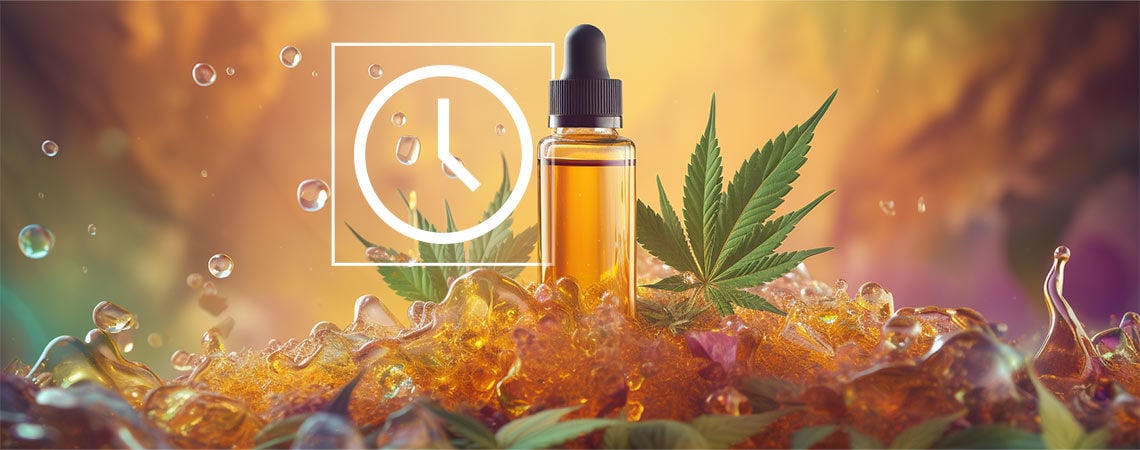
Reviewed by:
Arno HazekampReviewed by:
Arno HazekampIf you’re still not sure how much CBD you should be taking or how long the effects tend to last, don’t worry. Our simple guide will take you through the factors affecting CBD’s duration and show you how to get the most out of the cannabinoid.
he intensity and duration of CBD's effects depend on numerous factors, including a person’s weight, metabolism, the amount of CBD consumed, and, most importantly, the method of consumption. And though CBD's effects may wear off after a matter of hours, trace amounts of the cannabinoid can actually remain in the body for weeks. With all that in mind, this article will explore the main points you need to know regarding the duration of CBD's effects.
What to expect when taking CBD
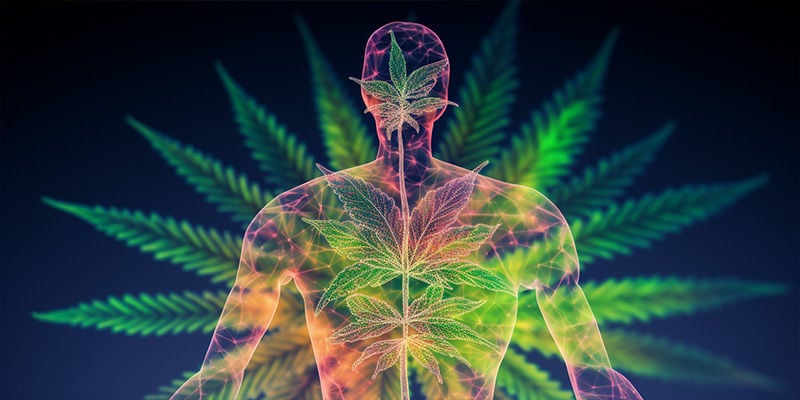
Thanks to CBD’s explosion in popularity, the cannabinoid is being consumed by countless people. But what exactly is it about CBD that has caught the eye of wellness enthusiasts, scientific researchers, and even pet owners?
CBD acts primarily through a principle of balance, supporting the body's desire for homeostasis. While there are specific use cases (health conditions), these require exact doses and advice from medical professionals. Instead, the general population has turned to CBD for its broad influence on mental and physical well-being. In everyday terms, CBD can affect areas such as:
- Sleep
- Mood
- Digestion
- Mobility
Of course, the impact of CBD in these areas differs according to your lifestyle and overall health. Therefore, it’s crucial to find a product and regimen that works for you—and that’s where understanding the duration of CBD’s effects comes into play. You don’t want to be consuming CBD needlessly; likewise, you don’t want the effects to fade when you need them most.
How long do CBD’s effects last?
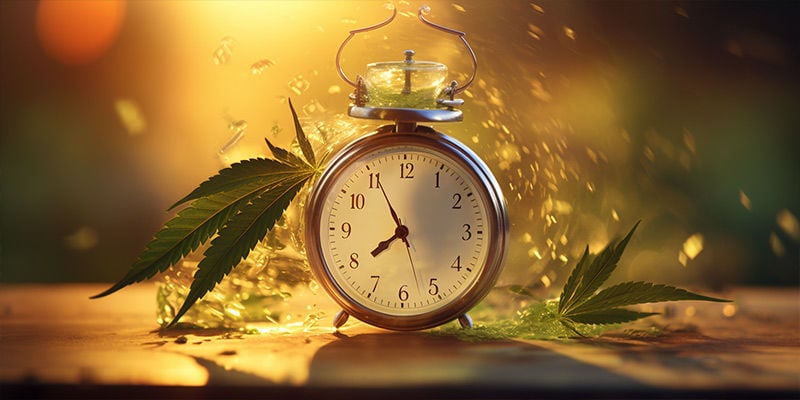
Devoid of intoxicating side effects, CBD has gained a reputation as an “everyday, low-threshold cannabinoid” that may benefit our bodies and minds in a variety of ways. Determining the correct dose of CBD can be tricky, especially since there are so many methods of consumption, all with their own specific bioavailability (i.e. rate of absorption into the body). However, for most CBD users, knowing how long CBD’s effects last and the magnitude of such effects is crucial to effectively manage their intake.
With that said, here are the main factors that impact the length and degree of CBD's effects.
Consumption method
Because different consumption methods have different rates of absorption, this typically has the greatest influence over the length and intensity of CBD's effects.
CBD oils and tinctures
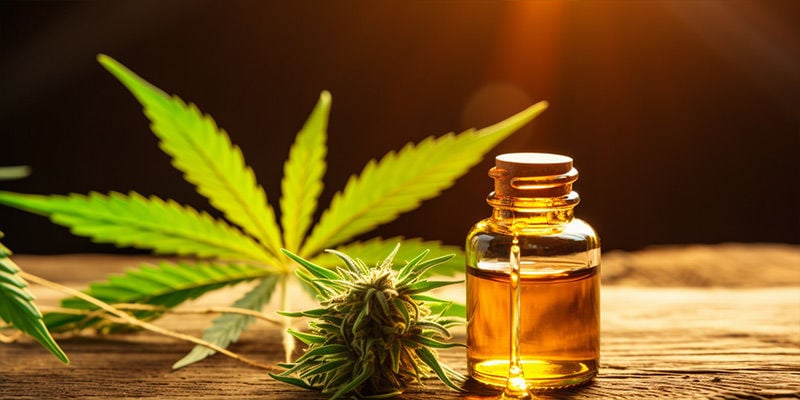
Most people consume CBD in the form of sublingual oils (oil dropped under the tongue) or tinctures. When taken in this convenient manner, CBD’s effects can last anywhere from 2–4 hours. The primary advantage of this method is how quickly the effects take hold; oftentimes, it requires only a few minutes. This is because CBD is able to quickly enter the bloodstream through an abundance of capillaries beneath the tongue, allowing it to work very fast.
CBD edibles
CBD can also be orally ingested in the form of an edible, such as a gummy or baked good. Moreover, thanks to the compound’s versatility, CBD oil and tinctures can be added to food or drinks. When ingested, CBD’s effects can last for anywhere between 4 and 6 hours. However, the degree of these effects is unpredictable. This is due to the first-pass effect (Pelley, 2017), a process whereby the liver prevents the absorption of many compounds that enter the body through the stomach.
CBD vapes
High-CBD strains of cannabis can be vaped and smoked just like their high-THC counterparts. However, when consumed in this way, the effects of cannabinoids usually only last 2–3 hours.
Despite this, some vaporizers provide a bioavailability of roughly 50%, making vaporization one of the most efficient ways to get the most out of your CBD. As with sublingual application, CBD's subtle effects come on almost immediately after inhalation.
CBD topicals
CBD can also be applied topically in the form of patches, creams, oils, and salves. The effects of topical application typically last anywhere between 2–4 hours. However, it is worth noting that the skin absorbs cannabinoids very slowly, and the effects do not travel beyond the local area of application, unless you’re using specially developed transdermal patches.
Dose/concentration
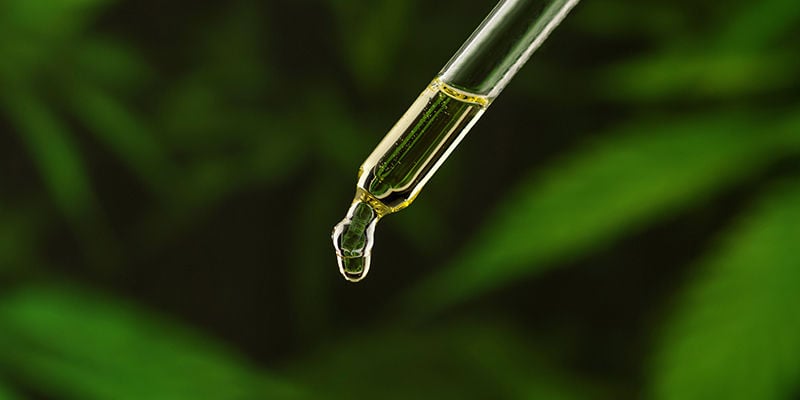
The length and intensity of CBD’s effects also depend on the concentration of the product or strain being consumed. The more CBD it contains, the more significant the effects may be.
Interestingly though, provisional studies suggest that CBD is only effective to a certain point (Linares et al., 2019). In an animal model, researchers discovered that “cannabidiol presents an inverted U-shape dose-response curve”. In simple terms, this suggests that the efficacy of CBD increases as you keep taking more—until you reach a certain dose. From here, the trend drops off and doesn’t keep increasing proportionally.
Now, this study only involved 57 patients, but it does suggest a need to find a “sweet spot” dose for CBD (the highest dose possible before effects fade) to garner the greatest benefit. For most people, this process involves slowly increasing daily consumption until they find a dose and frequency that delivers the desired effect.
Quality
Another key consideration for regular CBD users is the quality of their chosen product. After all, you need to be confident that the product matches its specifications. If the CBD has not been decarboxylated, contains additives, etc., this can reduce its efficacy, sometimes significantly.
There’s also an argument to be made for full-spectrum CBD products versus CBD isolate. The former includes a selection of minor cannabinoids and essential terpenes alongside CBD. By including a diverse selection of compounds, these products are believed to offer improved efficacy via the entourage effect (Ferber et al., 2020). This unique phenomenon suggests that natural compounds in cannabis work better together than in isolation, increasing the overall effect. Whether or not this prolongs the effects, however, is unclear.
CBD isolate, on the other hand, focuses exclusively on the influence of cannabidiol. Though its influence may not be as broad, it may appeal to people who want to harness CBD’s exclusive benefits. Indeed, it’s important to point out that CBD isolate isn’t necessarily inferior to full-spectrum formulas. Deciding which type of product is best for you comes down to your own wellness needs and the various CBD products available.
Biological differences
Your metabolism also plays a role in processing CBD. If you have a fast metabolism, then CBD will spend less time in your blood. Conversely, a slow metabolism will allow it to remain in your system for longer.
Something else to consider is your body’s tolerance to CBD. As with any substance, the more CBD you regularly consume, the higher your tolerance becomes. This means that, over time, it will become more difficult for your body to make the most of each dose of CBD.
In this case, you will need to consume more in order to achieve the same effects, switch up your consumption method, or stop taking it altogether (for a few weeks) in order to reset your tolerance. Taking a short break of about seven days from CBD use should be enough to lower your body’s tolerance back down to a sufficient level.
An individual’s weight also contributes to how they experience CBD’s effects. Generally speaking, people who weigh more require higher doses to feel the desired effects, whereas smaller people may experience them at lower doses.
How long does CBD stay in your system?
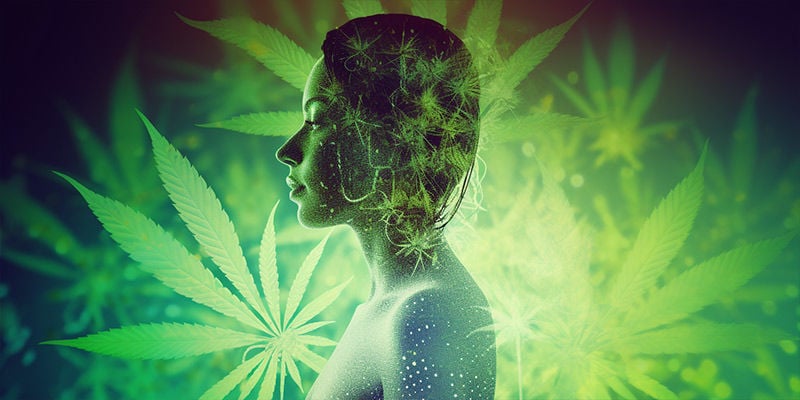
While CBD’s effects may only last a few hours or so, that doesn’t mean the compound is no longer in your body. CBD, like THC, is fat-soluble, meaning it gets stored in the body’s fat cells for quite some time after being consumed.
How much CBD you consume and how frequently you consume it will primarily determine how long the cannabinoid stays in your body. Simply put, the more CBD you consume, the longer it will take for your body to get rid of it.
With regular oral consumption, you can expect the cannabinoid to remain in your system for anywhere between two and five days (Meissner & Cascella, 2020). Obviously, the exact duration depends on the factors detailed above. But if you want to keep levels topped up and get closer to that five-day threshold, then consistency is key.
Try to split your daily dose across three servings, administering your chosen CBD product at regular intervals throughout the day. Given its relatively short duration of effects, it’s better to take the cannabinoid in smaller amounts more often, rather than taking one large dose per day.
Will CBD show up on a drug test?
Luckily, in order to determine cannabis use, drug tests only search for THC and its metabolites, not CBD. Nevertheless, some CBD products may contain trace amounts of THC. A good rule of thumb is that if it contains less than 0.3% THC, it is probably safe to consume, even if you may be tested. Though there is a chance of THC showing up, it’s definitely a very small one.
How long should CBD’s effects last?
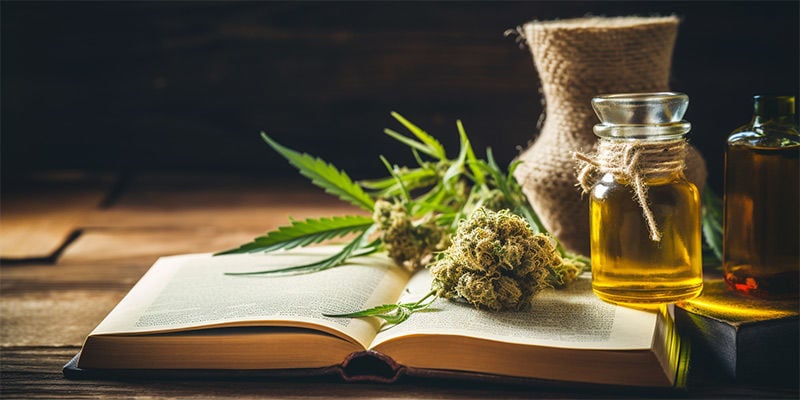
With all of the information regarding the duration of CBD’s effects, it can be easy to get bogged down with all the different factors. Ultimately, the best way to establish an effective schedule is to experiment with the cannabinoid yourself. Hunt down a high-quality product that you can administer using a method that suits your lifestyle, and start recording how the product makes you feel.
You can then start to gradually increase your dose, giving your body plenty of time to get accustomed to the effects. If you don’t feel like the impact lasts long enough or you desire a more pronounced effect, then increase your intake accordingly. If you reach a point where you can’t achieve the desired effect by taking CBD three times a day, then it may be time to consider changing either the product concentration or the administration method.

- Hannah Meissner, & Marco Cascella. (2023/06/04). Cannabidiol (CBD) - https://www.ncbi.nlm.nih.gov
- John W. Pelley. (2010). First Pass Effect - an overview | ScienceDirect Topics - https://www.sciencedirect.com
- Linares IM, Zuardi AW, Pereira LC, Queiroz RH, Mechoulam R, Guimarães FS, & Crippa JA. (2019 Jan-Feb). Cannabidiol presents an inverted U-shaped dose-response curve in a simulated public speaking test - https://pubmed.ncbi.nlm.nih.gov
- Pelley. (2017). First Pass Effect - an overview | ScienceDirect Topics - https://www.sciencedirect.com
- Sari Goldstein Ferber, Dvora Namdar, Danielle Hen-Shoval, Gilad Eger, Hinanit Koltai, Gal Shoval, Liat Shbiro, & Aron Weller. (2020, February). The “Entourage Effect”: Terpenes Coupled with Cannabinoids for the Treatment of Mood Disorders and Anxiety Disorders - https://www.ncbi.nlm.nih.gov
- France
- Germany
- International
- Italy
- Netherlands
- Spain
- United Kingdom
- United States
You might also like
-
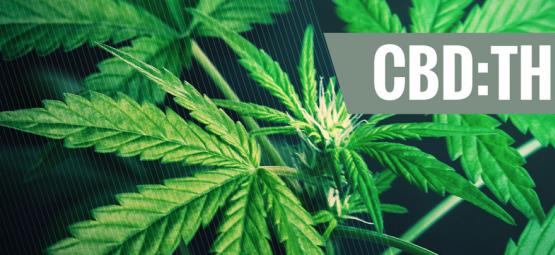
 9 min
2 September 2021
Understanding The Importance Of Different CBD:THC Ratios
The cannabis community is ripe with development and innovation. Breeders are now creating strains with diverse CBD:THC ratios, and scientists are urgently striving to discover their potential. ...
9 min
2 September 2021
Understanding The Importance Of Different CBD:THC Ratios
The cannabis community is ripe with development and innovation. Breeders are now creating strains with diverse CBD:THC ratios, and scientists are urgently striving to discover their potential. ...
-
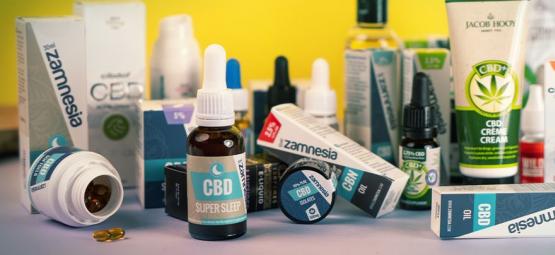
 4 min
6 August 2021
How To Use CBD: Which CBD Product Is Right For You?
CBD is becoming an increasingly popular dietary supplement, yet for the unfamiliar, knowing the most suitable way to take CBD can be a challenge. ...
4 min
6 August 2021
How To Use CBD: Which CBD Product Is Right For You?
CBD is becoming an increasingly popular dietary supplement, yet for the unfamiliar, knowing the most suitable way to take CBD can be a challenge. ...
-
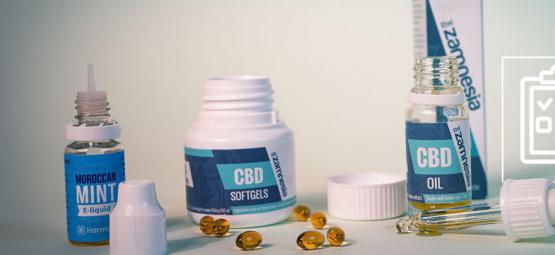
 5 min
1 July 2021
Can CBD Cause You To Fail A Drug Test?
Regular random drug testing is an unfortunate reality for many people. Luckily, taking CBD supplements like oils, tinctures, creams, or edibles shouldn't affect your drug test results. Keep reading to ...
5 min
1 July 2021
Can CBD Cause You To Fail A Drug Test?
Regular random drug testing is an unfortunate reality for many people. Luckily, taking CBD supplements like oils, tinctures, creams, or edibles shouldn't affect your drug test results. Keep reading to ...
-
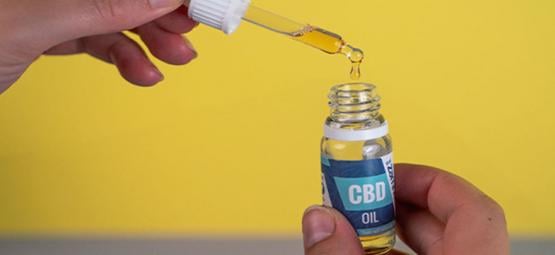
 3 min
15 January 2019
CBD Oil Benefits: Should You Use It?
CBD is fast becoming the star of the cannabinoid family. Taken in oil form, CBD is utilised for many purposes. Here's the scoop on why you should use CBD oil. ...
3 min
15 January 2019
CBD Oil Benefits: Should You Use It?
CBD is fast becoming the star of the cannabinoid family. Taken in oil form, CBD is utilised for many purposes. Here's the scoop on why you should use CBD oil. ...
Categories
-
Seedshop
- Feminized Cannabis Seeds
- Autoflowering Cannabis Seeds
- Regular Cannabis Seeds
- F1 Hybrids
- CBD Seeds
- Zamnesia Seeds
- Top 10 Autoflowering Seeds
- Top 10 Regular Seeds
- Top 10 USA Cannabis Strains
- Top 10 Zamnesia Seeds
- Top 10 Feminized Seeds
- Beginner Strains
- Below 1% THC
- Classic Cannabis Strains
- Cup Winners
- F1 Hybrids
- Fast-Flowering Strains
- High CBD Strains
- High THC Strains
- Mix Packs
- Zamnesia Exclusive Collabs
- Amnesia Seeds
- Blueberry Seeds
- Cheese Seeds
- Diesel Seeds
- Gorilla Seeds
- Haze Seeds
- Kush Seeds
- Purple Seeds
- Skunk Seeds
- White Widow Seeds
- Zamnesia Seeds
- ACE Seeds
- Advanced Seeds
- Amsterdam Genetics
- Anesia Seeds
- Auto Seeds
- Barney's Farm
- Big Buddha Seeds
- Bomb Seeds
- BSB Genetics
- BSF Seeds
- Buddha Seeds
- Bulldog Seeds
- Cali Connection
- Cannarado Genetics
- CannaBioGen
- CBD Crew
- CBD Seeds
- Compound Genetics
- The Dank Seeds
- Dark Horse Genetics
- Delicious Seeds
- Devil Harvest Original
- Dinafem
- DNA Genetics
- Doctor's Choice
- Dr. Underground
- Dutch Passion
- Elite Seeds
- Eva Seeds
- Exotic Seed
- Expert Seeds
- FastBuds
- Female Seeds
- Fenocan
- Flash Auto Seeds
- French Touch Seeds
- Garden of Green
- GeneSeeds
- Genehtik Seeds
- G13 Labs
- Grass-O-Matic
- Greenhouse Seeds
- Grow Your Own (DNA)
- Growers Choice
- Homegrown Fantaseeds
- House of the Great Gardener
- Humboldt Seed Company
- Humboldt Seed Organization
- Kalashnikov Seeds
- Kannabia
- The Kush Brothers
- Light Buds
- Little Chief Collabs
- Medical Seeds
- Ministry of Cannabis
- Mr. Nice
- Nirvana Seeds
- Original Sensible
- Paradise Seeds
- Perfect Tree
- Pheno Finder
- Philosopher Seeds
- Positronics Seeds
- Purple City Genetics
- Pyramid Seeds
- Rare Dankness
- Reggae Seeds
- Reserva Privada
- Resin Seeds
- Ripper Seeds
- Royal Queen Seeds
- Sagarmatha Seeds
- Samsara Seeds
- Seedstockers
- Sensation Seeds
- Sensi Seeds
- Serious Seeds
- Silent Seeds
- Soma Seeds
- Spliff Seeds
- Strain Hunters
- Sumo Seeds
- Super Sativa Seed Club
- Super Strains
- Sweet Seeds
- T.H. Seeds
- Top Tao Seeds
- Vision Seeds
- VIP Seeds
- White Label
- World Of Seeds
- Zativo Seeds
- Seed Banks
-
Headshop
-
Vaporshop
-
Healthshop
-
Smartshop
- Top 10 Smartshop
- Zamnesia Gift Cards
- After Party
- Aphrodisiacs
- Aromatherapy
- Blue Lotus
- CBD Vape Juice
- Capsule Machines
- Crystals, Gemstones & Minerals
- Dream Herbs
- Drug Tests
- Extracts
- Happy Caps
- Herbal Tea
- Herbs & Seeds
- Incense
- Kanna
- Kratom
- LSA Seeds
- Mescaline Cacti
- Microdosing
- Nootropics
- Relaxing
- Salvia divinorum
- Smart Seeds
- Stimulants
- Supplements
- Tinctures
- Vape Herbs
-
Shroomshop
-
Growshop
- Top 10 Growshop
- Top 10 Plant Seeds
- All Seeds
- Cacti
- Chili & Pepper Seeds
- Companion Plants
- Edible Plant Seeds
- Exotic Seeds
- Flower Seeds
- Fruit Seeds
- Herb Seeds
- Interior Plant Seeds
- Microgreens
- Psychoactive Plant Seeds
- Sprouting
- Vegetable Seeds
- Wellness Plant Seeds
- After Harvest
- Climate Control
- Fertilizer
- Grow Tents
- Harvest, Dry & Cure
- LED Grow Lights
- Plant Seeds
- Propagation
-
Merchandise
-
Sale section
Account
Information
Our Offers
Our website won't work without these cookies activated. Therefore functional cookies can't be disabled.
























